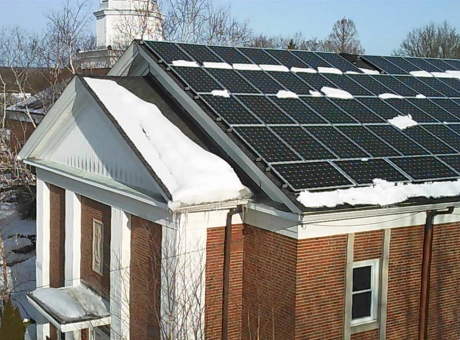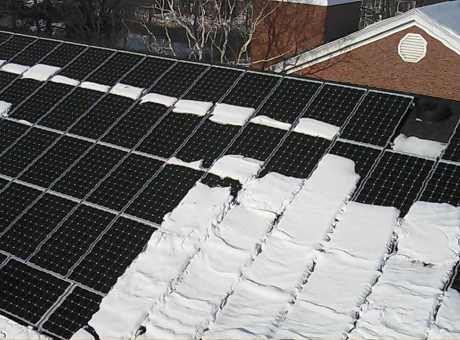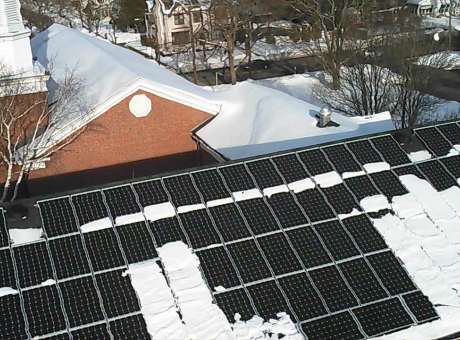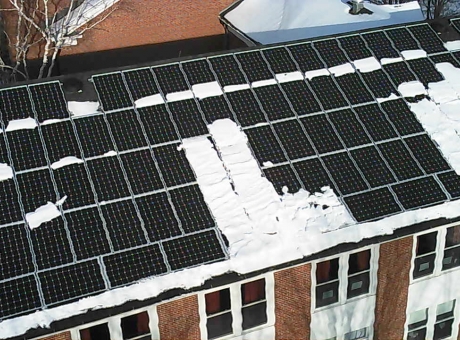Solar Panels Installed!
In about 2007, Nancy Dittes led a research effort to determine the viability of installing a solar panel system on the roof of the church in efforts to lower our utility bills and reduce our carbon footprint. Affordability held us back. Then in 2011, Roger Johnson put the idea back on the plate for the House Committee after he learned about Zero Emission Renewable Energy Credits (ZREC). These are credits mandated by the State to be paid by utilities to select producers of clean energy based on a lottery system. We talked to a few contractors and signed with SunlightSolar to install such a system dependent on drawing a lottery number high enough to be awarded a ZREC. In 2012 we scored 105 out of 130 and they picked only the top 32 applicants. However, in 2014, Spring Glen Church was awarded the number one slot in the lottery which equates to about $45,000 over a 15 year period. SGC will use these funds to pay down funds borrowed from the Building Endowment Fund to cover the installation costs of the solar system.
The ZREC credit coupled with the savings on our electric bill is expected to cover 100% of the costs associated with the purchase and installation of the solar system. There will be minimal, if any, impact to the annual budget. The church will pay for the purchase and installation costs with an interest bearing loan from the Building Endowment Fund, which was approved by a congregational vote at the May 2014 Annual Meeting. The system is warranted for 25 years, so after it is paid for in 15 years it will start generating free electricity to the church and, most importantly, for the 25-year life of the panels we significantly reduce our carbon footprint.
Fast forward to 2015! Despite this winter's snow, our solar panels are now installed, and we are waiting to be hooked in to the electrical grid managed by UI.
When we connect to UI's electric grid, we will add to it the energy we produce beyond what we use, and we will take from it when our panels are not producing enough energy. They call this "net metering." UI will track how much we add or draw each month and send us a notice with the outcome. Any sunny month we make more energy than we use they simply bank that for us, we are not paid for it. On future cloudy or snow covered panel days when we need more energy than the panels provide we will draw down on our 'banked' energy units. This is a great feature of going solar in CT. Net metering is mandated by law in CT. Other states don't mandate it so utility companies in those states don't have to track it or give it back. Solar systems installed in CT are approved by the utilities and they look to see that systems are designed to provide no more than 100% of a user's current energy needs. There is also very little incentive to produce more than needed since the payment by utilities for clean energy, kilowatt per hour production is very small, especially when compared to what consumers pay them for the fossil fuel version.
Photo courtesy of Marcia Hoffmann, Thanks for Ron Offutt for this write-up











